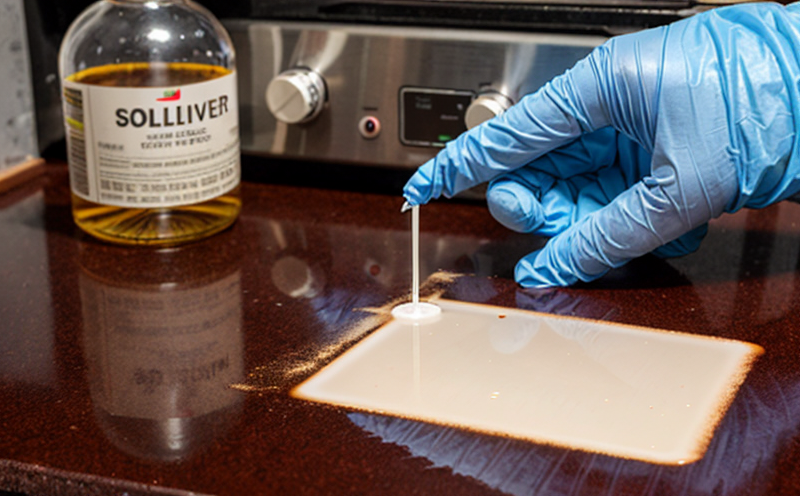Plastic Solvent Residue Testing
Plastic solvent residue testing is a critical analytical process designed to quantify the amount of residual solvents in plastic materials. This service ensures that products comply with regulatory standards and quality specifications, thereby safeguarding consumer health and safety.
The importance of this testing cannot be overstated, especially in sectors like pharmaceuticals, electronics, automotive manufacturing, and medical devices where even trace amounts of residual solvents can lead to adverse effects. Understanding the types of solvents present is essential for ensuring that they do not migrate into end products or packaging.
Our laboratory employs state-of-the-art techniques tailored specifically for this purpose. These include gas chromatography-mass spectrometry (GC-MS), high-performance liquid chromatography (HPLC), and Fourier transform infrared spectroscopy (FTIR). Each method offers unique advantages depending on the specific requirements of the sample.
Sample preparation involves thorough extraction using appropriate solvents followed by purification steps to ensure accurate quantification. Once prepared, samples undergo rigorous analysis according to internationally recognized standards such as ASTM D854 and ISO 17025.
The results provide detailed information about the types of residual solvents detected along with their concentrations. This data is invaluable for manufacturers who need to make informed decisions regarding raw material selection, processing conditions, and final product quality assurance.
Our comprehensive approach ensures not only compliance but also continuous improvement in manufacturing processes by identifying potential issues early on. By leveraging advanced analytical methods and adhering strictly to industry guidelines, we deliver reliable results that meet or exceed customer expectations.
Scope and Methodology
| Method | Description |
|---|---|
| Gas Chromatography-Mass Spectrometry (GC-MS) | This technique separates and identifies volatile organic compounds in complex mixtures, providing precise quantification. |
| High-Performance Liquid Chromatography (HPLC) | Used for separating, identifying, and quantifying non-volatile or thermally unstable substances within samples. |
| Fourier Transform Infrared Spectroscopy (FTIR) | Analyzes the interaction between infrared light and matter to determine molecular structure and composition. |
The scope of our testing includes but is not limited to thermoplastics, thermosets, elastomers, and composite materials. We also offer custom solutions based on specific customer needs or industry requirements.
Customer Impact and Satisfaction
- Promotes compliance with international standards and regulations.
- Enhances product quality by eliminating safety risks associated with residual solvents.
- Supports ongoing process improvements through early identification of potential issues.
Our clients benefit from peace of mind knowing that their products meet stringent requirements, which enhances brand reputation and fosters customer trust. Positive feedback from satisfied customers attests to the reliability and accuracy of our testing services.
Competitive Advantage and Market Impact
- Ensures adherence to stringent regulatory frameworks, reducing compliance risks for businesses operating globally.
- Gives manufacturers a competitive edge by delivering high-quality products that surpass market expectations.
- Solidifies long-term relationships with customers who appreciate transparency and reliability in product development processes.
By consistently meeting or exceeding industry benchmarks, we contribute to the overall growth of our clients' businesses while maintaining a robust presence in the marketplace. Our commitment to excellence sets us apart as leaders in this field.





